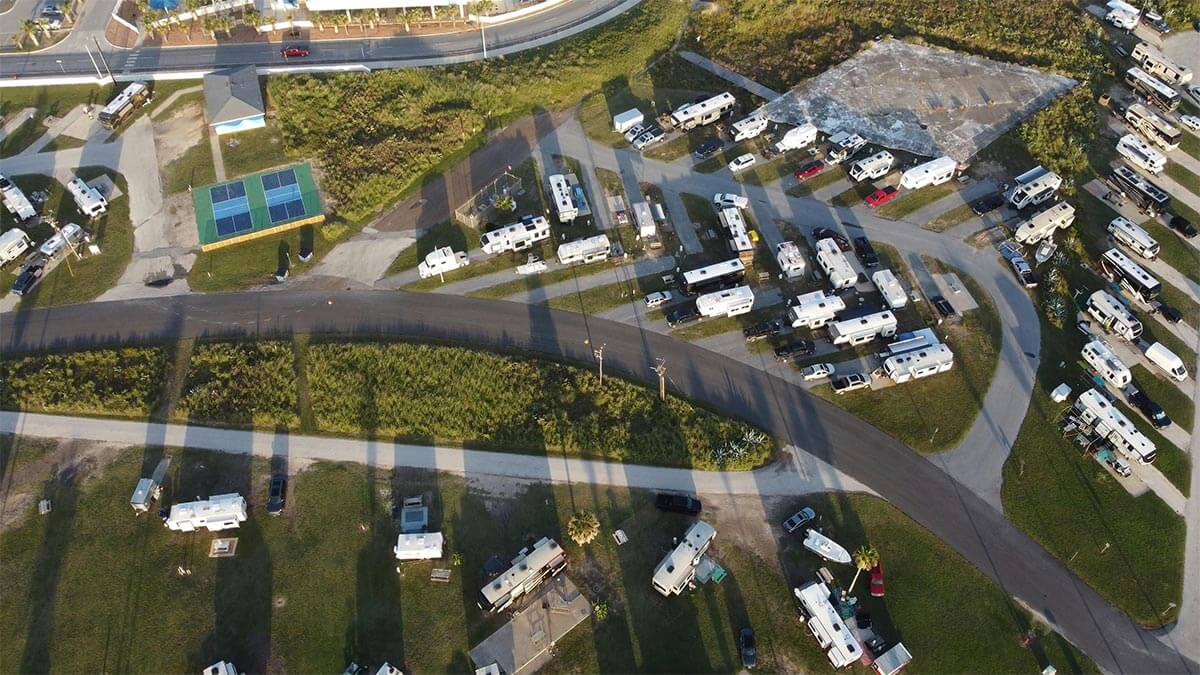Buying again doesn’t have to mean starting from scratch. If you’re selling your current home and looking for your next step, rent-to-own mobile homes could be the perfect bridge. These deals let you move in now and buy later, giving you time to save, settle in, and build toward full ownership.
Still, it’s not one-size-fits-all. Each agreement has its own rules about repairs, lease length, and what happens if you walk away. But with the right setup, this path could make owning your next home easier and more affordable.
Selling your home and ready to move forward? Skip the showings and get a data-backed cash offer, fast and hassle-free.
Table of contents
- What Is a Rent-to-Own Mobile Home?
- How Rent-to-Own Mobile Homes Work
- Pros and Cons of Rent-to-Own Mobile Homes
- Cost Breakdown: What You’ll Pay and When
- Financing Options for Mobile and Manufactured Homes
- How to Find Rent-to-Own Mobile Homes Near You
- Reilly’s Two Cents
- What to Know Before Signing a Rent-to-Own Agreement
- Manufactured vs. Modular: What’s the Difference?
- The Flexible Path to Your Dream Home
- FAQs About Rent-to-Own Mobile Homes
Instant Valuation, Confidential Deals with a Certified iBuyer.com Specialist.
Sell Smart, Sell Fast, Get Sold. No Obligations.
What Is a Rent-to-Own Mobile Home?
A rent-to-own mobile home is kind of like a test drive for homeownership. You move in and pay rent, but part of that rent might count toward buying the place later. You don’t need a big down payment right away, and you get time to decide if the home and the location really work for you.
These homes can be regular mobile homes or manufactured ones. They’re often in parks, but some sit on private lots. The big idea? You get a chance to live now, buy later. If everything lines up, you’ll own the place once the agreement ends. If not, you can walk away, no strings (well, fewer strings).
How Rent-to-Own Mobile Homes Work
Here’s the basic setup: You sign a lease, usually for 1 to 3 years. Each month, you pay rent, just like normal. But in a rent-to-own deal, some of that money might go toward buying the home later. That part’s called a “rent credit.” It adds up over time and helps lower the price when you’re ready to buy.
You and the seller agree on the purchase price upfront or later, depending on the deal. The contract should spell out the lease term, the price, who handles repairs, and what happens if you back out. You’ll want to read it all closely. These aren’t handshake deals, they’re legal ones.
Pros and Cons of Rent-to-Own Mobile Homes
Rent to own sounds great, but like anything in real estate, there’s some fine print. It helps to look at both sides before jumping in. Here’s a quick breakdown of the good and the not-so-good, so you can decide if this path fits your plans.
Pros first:
- You build equity while renting. That means you’re not just throwing money away.
- It gives you time, time to fix your credit, save money, and test the home.
- You lock in the price now, even if the market goes up later.
- Less upfront cash needed compared to buying right away.
Now the cons:
- If you walk away, you might lose your rent credits and fees.
- You may be on the hook for repairs during the lease.
- Not every mobile home qualifies for easy financing later.
- Rules in mobile home parks can be strict; read them before you sign.
Cost Breakdown: What You’ll Pay and When
With rent-to-own mobile homes, your costs usually fall into three buckets: upfront, monthly, and end-of-lease.
Upfront: You might pay an option fee, kind of like a deposit, to lock in your right to buy later. This can be a few hundred to a few thousand bucks. It’s usually non-refundable, but it might count toward your future home price.
Monthly: Your rent covers two things: regular rent and the rent credit. The credit is the part that builds up to help with the purchase later. Ask how much of your payment goes toward ownership; it’s not always clear.
End-of-Lease: When your lease is up, you’ll need financing or cash to buy. That’s when your home’s price matters most. Make sure it’s fair before you sign anything.
Financing Options for Mobile and Manufactured Homes
When it’s time to buy, you’ll need a way to pay. That’s where financing comes in, but mobile and manufactured homes don’t always follow the same rules as regular houses.
Some folks use personal loans or chattel loans (that’s a loan for a home not attached to land). Others go with FHA or VA loans, if the home meets certain standards and sits on land they own or will buy. These loans usually need a lower down payment but come with paperwork and credit checks.
If you’re in a rent to own deal, talk to a lender early. That way, you know what to expect when it’s time to buy. It’s also smart to ask if your rent credits can count toward your down payment, that can make a big difference.
How to Find Rent-to-Own Mobile Homes Near You
Finding these deals isn’t always as simple as checking Zillow. Start by looking at mobile home parks, some offer rent to own options right on-site. You can also search on real estate platforms that list manufactured and mobile homes, or connect with a local real estate agent who knows the area.
Another smart move? Ask around. Some sellers are open to rent-to-own but don’t advertise it. If a mobile home has been sitting for a while, they might be willing to work with you.
Lastly, double-check the park’s rules. Some places have age restrictions, pet rules, or extra fees that can catch you off guard.
Reilly’s Two Cents
I’ve helped folks navigate tricky home sales before, some fast, some full of hurdles. Rent to own isn’t something I’ve handled directly in Florida, but I’ve seen how it can give buyers a real shot at ownership when they’re not quite ready for a traditional sale. It’s not perfect, but when done right, it can open doors.
If you’re considering rent-to-own, here’s what I always tell people to keep in mind:
- Get everything in writing. Verbal promises don’t count in real estate. You need clear terms, like who’s doing the repairs, what the monthly credit is, and what happens if things go sideways.
- Have the home inspected. Even if you’re renting now, it’ll be yours later. You want to know what you’re getting into before you commit long-term.
- Look ahead. Can you realistically get financing when the lease ends? If not, you risk losing the home and everything you’ve paid in.
This path isn’t for everyone, but if you’re careful, it can be a smart way to work toward owning your place, without diving in headfirst.
What to Know Before Signing a Rent-to-Own Agreement
Before you sign anything, slow down and read the fine print. This isn’t just a regular lease, it’s a mix of renting and buying, and that means more to check.
First, know the lease term. How long do you have before you need to buy? Make sure that timeline works with your savings and credit goals.
Next, look at who handles repairs. In some deals, you take care of everything, just like an owner. Others might still treat you like a renter.
Also, double-check the purchase price. Is it locked in now, or decided later? You’ll want to make sure it’s fair and that the agreement says so clearly.
Last thing? Have a pro look it over. A real estate agent or lawyer can spot red flags you might miss. It’s a small step that can save you big headaches later.
Manufactured vs. Modular: What’s the Difference?
These two types of homes might look alike, but they’re built a little differently, and that can affect your rent-to-own deal.
Manufactured homes are built in a factory and moved to a site, often sitting on a steel frame. They follow federal HUD codes and are common in mobile home parks.
Modular homes, on the other hand, are also factory-built but follow local building codes like site-built homes. They’re set on a foundation and can often qualify for traditional mortgages more easily.
Why does it matter? If you’re thinking about financing or resale down the line, knowing which type you’re working with helps you plan better. Both can be great homes, just make sure the one you’re renting to own fits your long-term goals.
The Flexible Path to Your Dream Home
Rent-to-own mobile homes give you breathing room, time to save, time to build credit, and time to test out your future home. It’s not a shortcut, but it is a real path forward if you’re not quite ready to buy today.
Just make sure you go in with clear eyes. Read the contract, ask questions, and know your budget. Done right, this can be a smart, steady step toward your dream home, without diving in headfirst.
Already own a home and planning your next chapter? Start fresh with less hassle, get your fair, cash-backed offer from iBuyer.com, and move on your terms.
Compare Cash Offers from Top Home Buyers. Delivered by Your Local iBuyer Certified Specialist.
One Expert, Multiple Offers, No Obligation.
FAQs About Rent-to-Own Mobile Homes
Most lease terms run from 1 to 3 years. It gives you time to build savings or fix credit before buying.
Not always. Rent to own deals often work for folks with less-than-perfect credit. Just be sure you can qualify for financing later if you plan to buy.
You can usually walk away, but you may lose your rent credits and any option fee you paid upfront.
Maybe, check your agreement first. Some deals let you, others require permission from the owner or park.
Yes, many are. Just be sure to review park rules, as they can affect your day-to-day life and future ownership plans.
Reilly Dzurick is a seasoned real estate agent at Get Land Florida, bringing over six years of industry experience to the vibrant Vero Beach market. She is known for her deep understanding of local real estate trends and her dedication to helping clients find their dream properties. Reilly’s journey in real estate is complemented by her academic background in Public Relations, Advertising, and Applied Communication from the University of North Florida.




